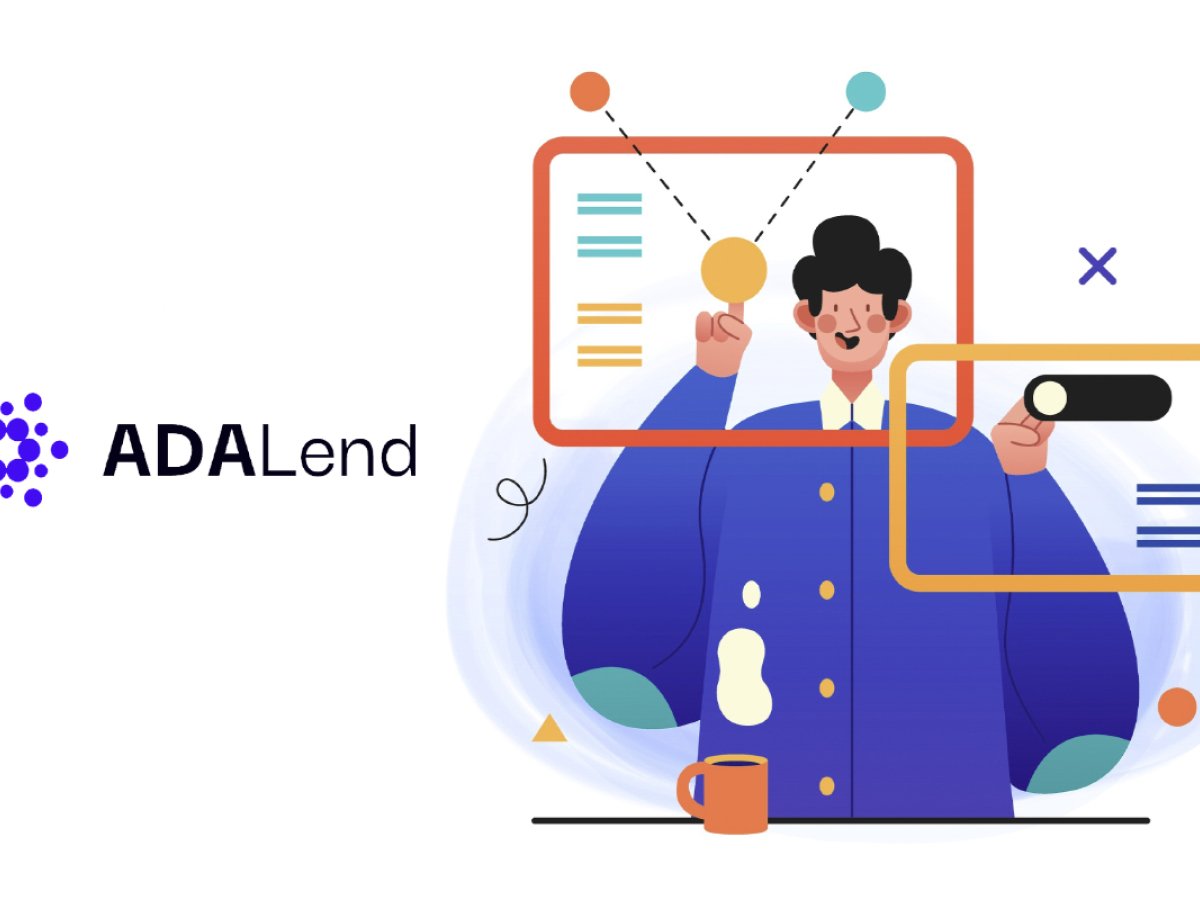
ADALend utilizes Cardano blockchain to launch an efficient lending protocol with maximum processing speed and low costs
Contents
- Cardano blockchain
- ADALend’s place in DeFi field
ADALend builds a decentralized, community-regulated lending protocol that becomes a part of modern and flexible financial solutions on the Cardano blockchain.
ADALend plans on becoming a part of the global financial services ecosystem for digital assets in the future. The protocol will provide rapid loan approvals, auto collateralization, trustless custody and liquidity provision for the decentralized digital assets markets.
Cardano blockchain
ADALend functions on the modern Cardano blockchain designed for applications with various capabilities like the mentioned protocol. Cardano allows apps to work in a scalable, secure and transparent ecosystem that utilizes cutting-edge technology and is constantly upgraded and developed further.
The Cardano network is one of few well-known cryptocurrencies with one of the most accessible blockchain networks in the industry. The main advantage of the blockchain lies in the company behind it. The IOHK Foundation with Charles Hoskinson at the helm has created a foundation for one of the most vital blockchain assets in the industry. The project is still being developed at the same foundation and has a bright future ahead.
Cardano (ADA) is constantly being supported by strong developer teams that constantly work on the development of the company’s projects. Its most recent implementation of smart contracts technology launched its underlying token price in the sky with more than 100% growth.
The blockchain’s significant scalability potential and its compliance with decentralized applications will satisfy future demands in various fields, including decentralized finance.
ADALend’s place in DeFi field
The main feature that Cardano blockchain brings to the table is the operational costs that DeFi application users have to pay constantly. In comparison with Ethereum fees, Cardano provides a significantly cheaper system to work with. Applications are able to spend, receive and initiate contracts almost 99% cheaper for the same operations on Ethereum.
In some circumstances, Ethereum fees reached as high as $150 per transaction, which is an unacceptable cost for an industry in which some applications and users make up to hundreds of transactions per month, in addition to applications that heavily use the network and make thousands of transactions per hour.
In addition to significantly lower costs, Cardano provides significantly quicker transaction processing, and its codebase is being developed in the Haskell widely-used programming language.
ADALend will use oracles Chainlink and Ergo to create a more secure and efficient experience for clients. By using Ergo’s oracle pools project, users can work within a more configurable oracle architecture that does not rely on many single oracle data sources.
This news is republished from another source. You can check the original article here

Be the first to comment